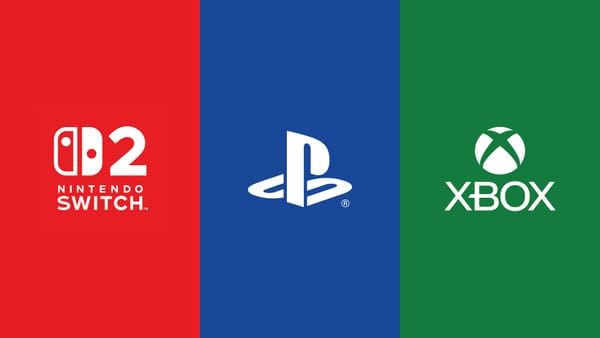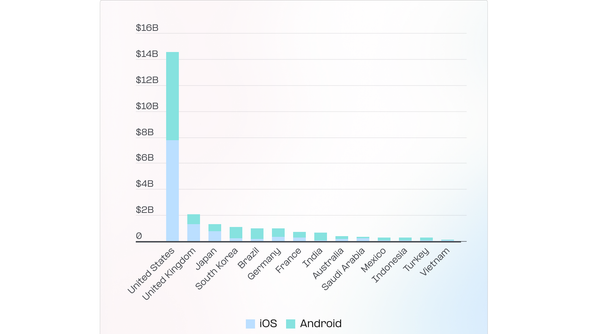Janette Lipinski: Entering the Games Industry 20 Years Ago "Felt Like Crashing a LAN Party"




For Janette Lipinski, games have always been more than a hobby. They've been a constant presence, from childhood afternoons to professional milestones. Today, she channels her passion for the medium into leading project teams and shaping production at one of Germany's largest gaming companies.
Janette Lipinski didn't plan on a career in the games industry, it just happened to be where curiosity and opportunity met. What started as a part-time role during school quickly turned into a long-term professional path. Her first experience came as a beta tester for a publisher while finishing her final exams. Rather than returning to her original plan of academic study, she chose to deepen her hands-on experience and pursue further training in project management and leadership. "I realized I already knew what I wanted to do," she explains. "I've always been someone who learns best by doing." Now, with nearly two decades of experience behind her, Lipinski leads the project management team at Gameforge, one of Germany's established online game publishers. She's been with the company for over 15 years, having started as a producer and worked her way up through various roles. Throughout that time, she not only guided major projects but also helped shape the internal workflows that define how the company produces and refines its games and tools. "Gameforge gave me the space to grow, both professionally and personally," she reflects. "There was always room to take initiative and learn."
Her development into a leadership position wasn't accidental. She actively pursued certifications in project management and later branched into areas like self-leadership and team dynamics. This approach reflects her personality. "When something new comes my way, I dive into it. I learn independently, figure it out by doing. That's how I've always worked, whether in my career or in my hobbies." A few years ago, she decided to reconnect with music, a passion from her youth. Rather than take lessons or follow a set curriculum, she bought an electric piano and taught herself, playing whatever brought her joy. It's a metaphor for her career as well: self-directed, instinctive, and rooted in curiosity.
Still, entering the industry wasn't without its challenges. In her early days at a small developer, Lipinski recalls walking into the team's workspace to find an entire group mid-match in a Mario Kart tournament – her first experience of game development felt like stepping into a LAN party. "They were all playing. I had just walked into the room, and it was like: what am I interrupting?" That kind of culture – male-dominated, informally structured, and tightly bonded – was typical of the time. She also remembers her time as the only woman in her Counter-Strike clan and later as a dedicated World of Warcraft player, spending evenings raiding three times a week. "For a long time, being the only woman was normal for me, whether in the games I played or the teams I worked with." That, however, has changed significantly.
"Over the last 25 years, more and more women have entered both the player base and the industry itself, even in spaces that used to be considered very male-dominated. It reminds me a lot of how things have evolved in other areas, like sports. You see more balance now." - Janette Lipinski
At Gameforge, around 35% of employees are women which is still an unusually high figure in the games industry. While the company doesn't advertise itself on this point, the number reflects broader efforts to hire based on skill and potential, not gender. Lipinski points out that women in leadership positions are a natural part of the company culture today, not an exception.
Still, the wider industry has work to do. Issues like salary transparency, work-life balance, and outdated perceptions of job instability remain real barriers, especially for people considering the field later in life or after starting a family. Lipinski stresses the importance of offering flexible working conditions, part-time models, and remote opportunities. These are all factors that can make careers in games more accessible to people at different life stages.
As a team lead, Janette Lipinski is passionate about cultivating environments where people can do what they truly enjoy. "You can tell when someone is doing something they're passionate about. It changes how they show up, and it has a real impact on the success of the team." She brings this belief into her own management style, emphasizing trust, autonomy, and collaboration. "Leading my team rarely feels like work," she says. "I love seeing them grow, solve problems in their own way, and contribute something meaningful."
Outside of work, she still plays games, though not with the same intensity as in her earlier raiding days. With two young children at home, she now leans toward more flexible single-player titles or casual simulations. "I don't have the time to commit to big multiplayer experiences anymore. But I still love games. They're just part of who I am." Her son has already caught the gaming bug, discovering Pokémon and Mario Kart on the Switch. When he visited her office at Gameforge recently, he was so impressed by the play spaces and relaxed atmosphere that he declared his intent to work there one day. "To him, it just looked like a big party," she laughs.
Asked whether she would encourage her children to pursue careers in games, Lipinski doesn't hesitate. "I've always said that what matters most is doing something that brings you joy. If you love what you do, it shows, and it makes a difference, not just for you, but for everyone around you." That belief, grounded in years of practical experience and a clear understanding of the industry's realities, has guided her decisions more than any diploma ever could.
Looking to the future, Lipinski hopes to continue developing her leadership while mentoring others. She's interested in contributing more to conversations around women in games, flexible career paths, and how work and life can coexist without constant conflict. For her, the games industry remains a unique space – creative, fast-moving, and, when done right, deeply human. "It's not perfect. But it's full of people who care, who support each other, and who are in it for the right reasons. That's why I stayed. And that's what I hope we keep building on."
Short profile: Janette Lipinski is a longtime games industry professional with a background that spans QA, production, and project management. She discovered her passion for gaming early, starting as a beta tester during school, and quickly found her place in development teams where she combined organizational thinking with creative energy. After working in testing and game design at smaller studios, she joined Gameforge, where she has grown into a leadership role over the past 15 years. Today, she leads the project management team, shaping production workflows and supporting teams across a range of browser and client games. Still a gamer at heart, Janette now enjoys sharing her love of games with her two young children.








